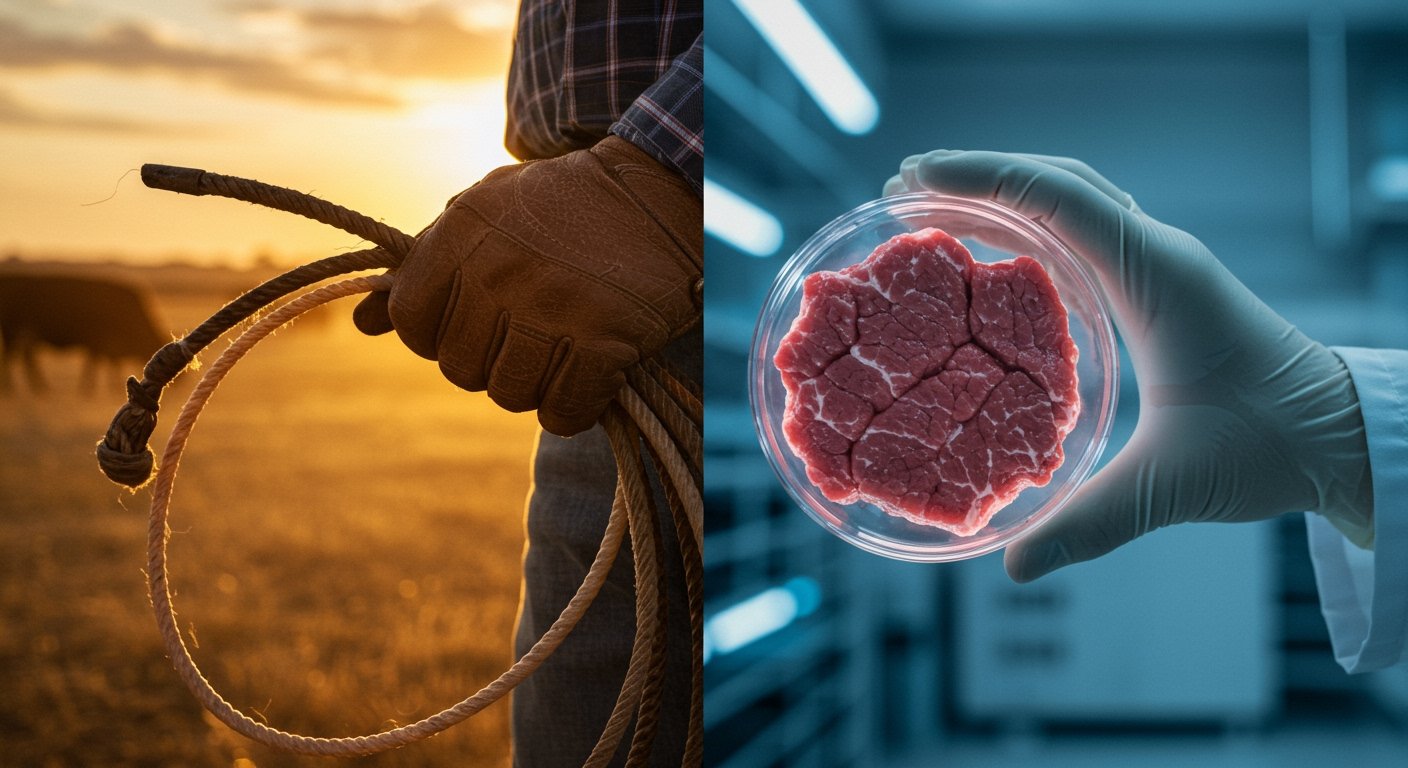Austin, Texas – Texas has officially become the seventh state in the United States to prohibit the sale of cultivated meat products, a move that underscores growing regulatory hurdles for the nascent lab-grown protein industry across the nation.
Governor Greg Abbott signed Senate Bill 261 (SB 261) into law on June 25, 2025, solidifying Texas’ position alongside states like Florida, Alabama, Mississippi, Montana, Indiana, and Nebraska that have enacted similar statewide restrictions or bans.
Legislative Action in Texas
The newly enacted Texas law, SB 261, is scheduled to take effect on September 1, 2025. It imposes a direct prohibition on the sale of cell-cultured meat for human consumption within the state.
According to the text of the bill, which introduces amendments to the Texas Health and Safety Code, “cell-cultured protein” is defined as a food product derived from harvesting animal cells and artificially replicating them in a growth medium. The legislation includes provisions for both civil and criminal penalties for violations, signaling a firm stance by the state against the commercialization of these products.
Significantly, the Texas ban is not permanent. It is set to remain in force through September 7, 2027, unless state lawmakers opt to extend its duration before that date. This two-year timeframe mirrors the approach taken by Indiana, which previously outlawed the sale of cultivated meat products from July 1, 2025, to June 30, 2027.
A Growing Trend Across States
Texas’ action adds significant weight to a burgeoning movement among U.S. states seeking to regulate or outright ban cultivated meat. While proponents of the technology tout it as a sustainable alternative to traditional meat production, it faces strong opposition from conventional agricultural interests and consumer groups in various states.
The alignment of Texas, a state deeply associated with cattle ranching and traditional agriculture, with other states like Florida, Alabama, Mississippi, Montana, Indiana, and Nebraska, highlights a regional and ideological divide emerging over the future of food production. These states collectively represent a significant market share that could be closed off to companies developing and scaling cultivated meat technology.
Industry Reaction and Supporters’ Views
The legislative pushback against cultivated meat has been notably supported by traditional livestock industry groups. The Texas and Southwestern Cattle Raisers Association, a prominent voice for ranchers and cattle producers in the region, expressed strong support for SB 261.
In statements following the bill’s passage, the association argued that the ban would serve to prevent Texas consumers from being subjected to a “science experiment,” a phrase often used by critics to cast doubt on the safety and nature of lab-grown products. Furthermore, the organization framed the legislation as a necessary measure to counter agendas they believe seek to end traditional animal agriculture, positioning the ban as a defense of established farming practices and rural economies.
Broader Implications and Legal Challenges
The move by Texas and other states is taking place amidst a complex regulatory landscape at the federal level. Companies like UPSIDE Foods have already received governmental approval from U.S. regulatory bodies for the sale of their lab-grown meat products, provided they meet specific safety and labeling requirements. This divergence between federal clearance and state-level prohibition sets the stage for significant legal conflicts.
Indeed, legal challenges against such state-level bans have already begun to emerge. UPSIDE Foods, among other companies involved in the cultivated meat space, has filed lawsuits challenging the legality of these state prohibitions, including a notable case against the state of Florida. These legal battles are expected to center on questions of interstate commerce, federal preemption in food regulation, and the rights of companies to sell products approved at the national level.
The outcome of these legal challenges will likely have profound implications, potentially determining whether cultivated meat can access markets in a significant portion of the United States or if state-level restrictions will effectively create barriers to entry, shaping the future trajectory of the alternative protein market.






